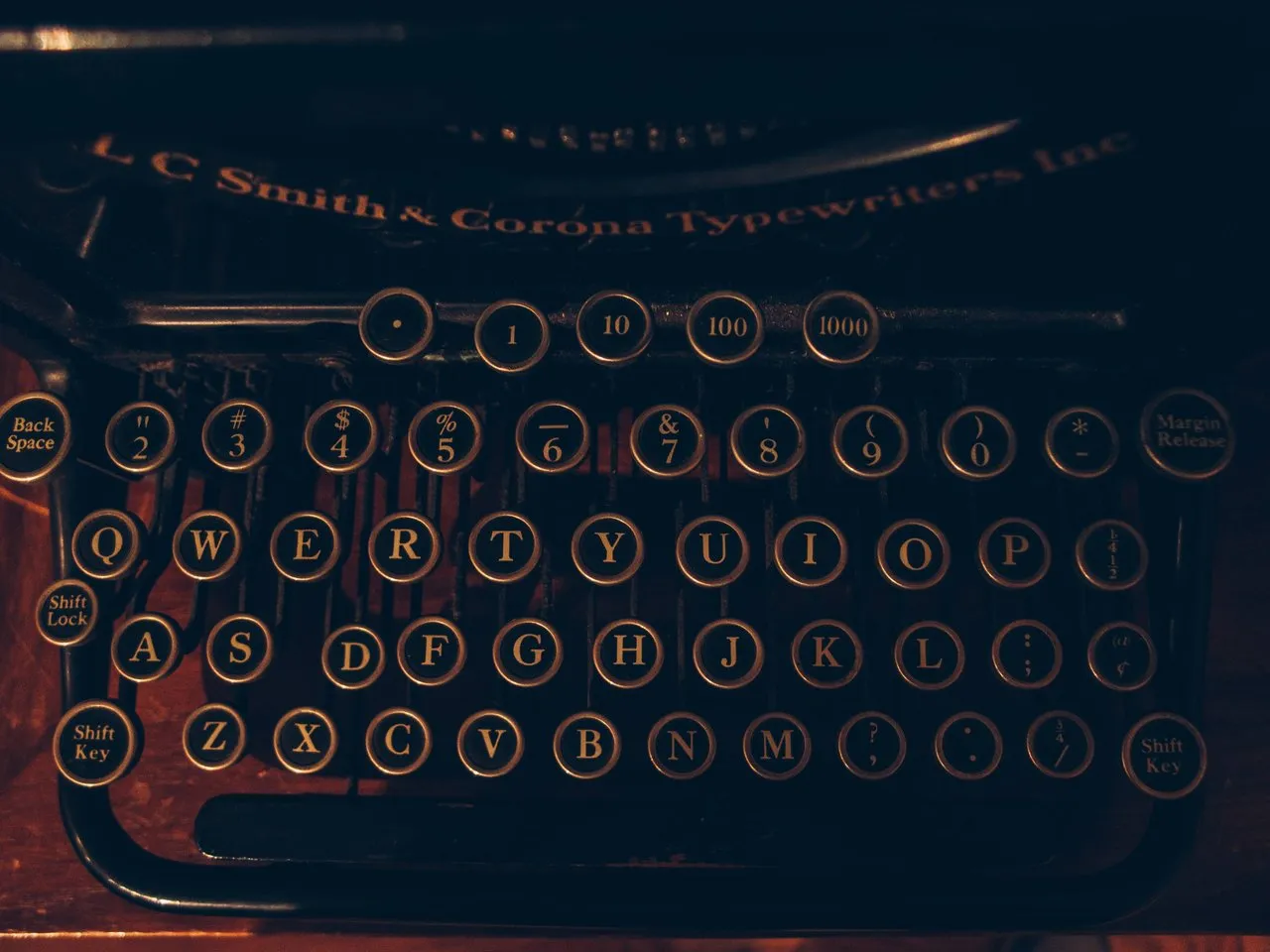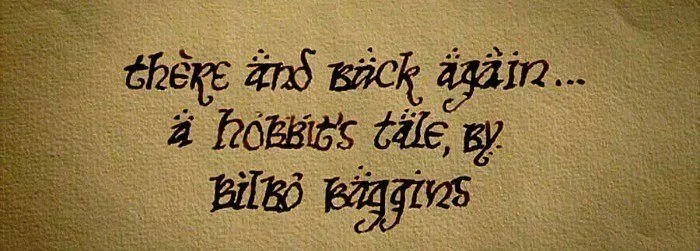
Photo by Andrew Seaman on Unsplash
If there is one thing all the Steem people have in common, it's...crypto. Right, but that's not what I was talking about. The second thing people here on this platform have in common is writing. There is indeed a large writing community on Steem, there are many aspiring writers here, or maybe just people who enjoy penning the odd story in their spare time. That's all good and well, because writing is an excellent outlet. It can be extremely cathartic and it helps develop your brain. It pushes you to think outside the box, which is something we should all strive towards.
So, I thought today, I'd write a post aimed specifically at those people, the writers. Because I have written a lot of literature posts for @adsactly (and I plan to write many more) but those can also be enjoyed by readers, so this one is especially for the writers. Although, you're welcome to read, too. Who knows, it might inspire you to create some art.
As a writer, there should be no rules that you follow, absolutely none. Whoever tells you that you need to do X or Y in order to write, they're lying and you shouldn't listen to them. It's crucial, when you're writing, that you only listen to yourself. I mean, think about it, chances are that the story you're telling came from somewhere within you and then, who better to know how to end it? You, naturally. You know what needs to be done. Trust yourself and write every day and bam, you've finished a story.
But what happens when you want others to enjoy the story? Well, here it's a bit different. While I do believe you should never compromise your artistic integrity, that you should never ever change your story in a way you don't like in order to be more commercial, I do think that the story might need a few tweaks before it's ready to hit the bookstores. Because isn't that every artist's desire? To share their art with as many people as possible?
1. Where is this story going?
Perhaps the most important thing when you're writing (as well as editing your work) is to have a clear sense of direction. Where are you going? What's the story about?
It's often true that writers don't know where their story is going, that you just sit down to write and let it take you somewhere new, without knowing where that somewhere might be. And that's all good, it's how it's supposed to be. It's an artistic freedom that is paramount if you want to create something good.
But (yes, there's always a but) that doesn't mean you should let your story drift aimlessly. You may laugh, you may say you would never do that, but it happens more often than you'd like to think.
The writer loses interest, or you let your thoughts drift. Maybe you had a great starting point, but now, you're unsure where to go next. Well, take a moment and focus and decide upon a course of action. And even though that course may change as you write, it's good. Never write without a purpose in mind, because the reader isn't dumb. They will recognize where you're just drifting, they will know you have no idea where you're taking the story. And if you don't know, why should they care?
2. Does this advance the story?

Photo by Reuben Juarez on Unsplash
This is more an editing tip.
Perhaps the most important question you, as a writer, can ask. Besides 'am I happy with this story?', of course. You might lose yourself while writing and that's okay. You're supposed to write a brief 5-line dialogue about religion and the next thing you know, you're 7 pages deep into a big speech about the rights and wrongs of Christianity. Hey, it happens. And while you may have very valid points there, you should never let your story stray away from the subject at hand.
When you edit, you should read through your words with a critical eye, harsh and brutal and murderous even. You must be able to recognize that those 7 pages about religion are not advancing your story and even though you love them, you must delete.
You come across an overly-long description of the weather? Is your story about weather? Does weather play some major role in the way events unfold? If yes, you may keep that description. If not (which is probably the case), it has to go.
Again, readers care about their time, they don't want to waste it on parts that lead nowhere. You must make sure your story is airtight, and those drifting moments are really just holes in the story.
That being said, I often choose to ignore this rule. Why? Because sometimes I feel that even though a paragraph doesn't advance the story as such, it does build an atmosphere or a relationship with the reader.
So always ask yourself 'does this advance the story?' and remember, some paragraphs are okay.
3. Hit 'em in the feels

Photo by Cristian Newman on Unsplash
What drives a writer, and indeed, any artist, is feeling. Always. Whether it's anger, unrequited love, hatred towards your teacher, grief for your dad, it has to make its way into your art. Because if it doesn't, then your art is empty.
Careful, I don't mean by this that say, you lost your cat last week and now you're grieving, then every story you write should be about losing your cat. No, that should be an obvious no. One story about a dead cat is fine, maybe two, tops. But more gets repetitive. And we don't want that, do we?
What I'm talking about here is the energy behind that feeling, you must channel it into your work, you must let it drive you. As I said, writing can be very cathartic, it might help you deal with your feelings, whatever they are. But only if you let it.
Humans are emotional creatures. Almost every day, you're feeling something, whether it's mere boredom, pain, heartbreak or extreme joy. Put some of that into the character, because you're feeling it at a certain intensity. If it wasn't unusual, you wouldn't be aware you were hurting, right? Make sure your character feels things at the same intensity, because that will make him more real, easier to relate with.
4. Action, action, action

Photo by Raj Eiamworakul on Unsplash
No, by that I don't necessarily mean you need a Bruce Lee type of scene in every story. Not at all. But I do mean that whatever you write should push your readers towards some sort of action. You should always inspire your readers to act, because that's just what great art does.
The Hobbit makes readers want to go on an adventure. Romeo and Juliet makes readers want to fall in love. And these stories make readers more open towards a feeling, more inclined to act. As I said, you need to put your feelings into your work, it's good for both you and the reader. And ideally, that intensity in your story should also push the reader to do something.
You don't necessarily have to tell your readers “you must do this”, but you should help them, with your words, to find a solution. If people identify with a problem that one of your characters has, you must give them some sort of resolution. Because if your character starts out with a problem, he or she really needs to change that problem by the end. Story is all about who is most changed by the story's events. If the change is powerful, your readers will be more inclined to act.
5. Don't write to impress

Photo by Dmitry Ratushny on Unsplash
No one. Really, no one. You know why? Because the greatest stories are easy, they're simple. I mean, look at Shakespeare for example. His basic plots are not remarkable in the least, so don't try to squeeze in a dragon and some cool special effects to dazzle your reader, okay?
Your reader will be happy with a simple story, because, as one of my favorite quotes about writing says, of course it's been written before, but not by you ( I can't for the life of me find the exact quote).
But most importantly, write. You'll figure out the rest. What's your favorite piece of writing advice?
Authored by: @honeydue
Click on the coin to join our Discord Chat

Witness proposal is here:
Go To Steem Witness Page
In the bottom of the page type: adsactly-witness and press vote.

Use small letters and no "@" sign. Or, click here to vote directly!
Thank you!
